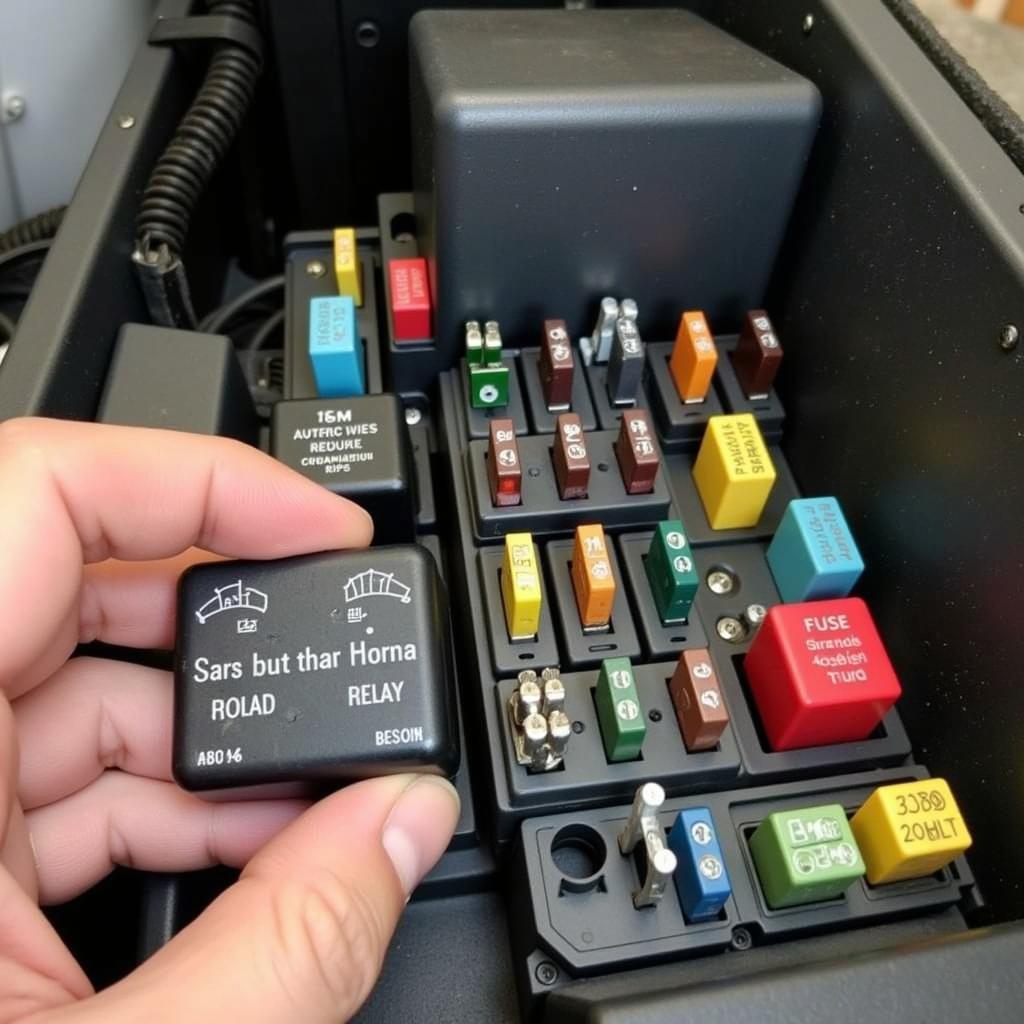If your Car Has Problems Starting In The Morning, you know how frustrating that can be. It disrupts your schedule, causes stress, and can leave you stranded. This comprehensive guide explores the common causes behind this issue, offers practical solutions you can try yourself, and advises when it’s time to seek professional help.
Why Your Car Has Problems Starting in the Morning
There are several reasons why your car might struggle to start in the morning. These range from simple fixes to more complex mechanical issues. Understanding the potential causes empowers you to troubleshoot effectively and avoid unnecessary expenses.
Common Culprits Behind Morning Starting Issues
- Battery Problems: A weak or dying battery is the most frequent cause. Cold temperatures can further reduce battery performance, making it harder to crank the engine. Corrosion on battery terminals can also impede the flow of electricity.
- Alternator Issues: The alternator recharges the battery while the engine is running. A faulty alternator can prevent the battery from receiving a full charge, leading to starting problems, especially after the car has sat overnight.
- Starter Motor Malfunction: The starter motor is responsible for cranking the engine. A worn-out or failing starter motor can struggle to turn the engine over, particularly in the cold.
- Fuel System Problems: A clogged fuel filter, faulty fuel pump, or leaking fuel injectors can restrict fuel flow to the engine, making it difficult to start. This can be more noticeable in the morning when the fuel has had time to settle.
- Ignition System Faults: Spark plugs, ignition coils, and other components of the ignition system are essential for igniting the fuel-air mixture. Worn or damaged parts can cause misfires and starting difficulties.
Troubleshooting Your Car’s Starting Problems
Before rushing to a mechanic, there are a few things you can try yourself to diagnose the problem. These simple checks can save you time and money.
Checking the Battery
First, check the battery terminals for corrosion. If they look corroded, clean them with a wire brush and a mixture of baking soda and water. Then, try jump-starting the car. If it starts, it’s a strong indication of a battery issue.
Examining the Starter
If you hear a clicking sound when you turn the key, it could be a sign of a faulty starter motor. Try tapping on the starter with a hammer while someone else tries to start the car. Sometimes, this can temporarily dislodge a stuck starter solenoid.
Inspecting Fuel and Ignition Systems
Checking the fuel and ignition systems requires a bit more technical knowledge. You can check for fuel leaks and inspect spark plugs for wear. However, if you are not comfortable working with these systems, it’s best to leave it to a professional.
When to Seek Professional Help
If you’ve tried the basic troubleshooting steps and your car still has problems starting in the morning, it’s time to seek professional help. A qualified mechanic has the tools and expertise to diagnose and repair more complex issues.
“Ignoring starting problems can lead to more significant and costly repairs down the road,” says Robert Johnson, a seasoned automotive technician with over 20 years of experience. “Addressing the issue early can save you both time and money.”
Conclusion
Dealing with a car that has problems starting in the morning can be a real headache. But by understanding the common causes and following the troubleshooting tips outlined in this guide, you can often pinpoint the issue and get your car back on the road. If the problem persists, don’t hesitate to contact a qualified mechanic for assistance. For expert advice and reliable service, reach out to AutoTipPro at +1 (641) 206-8880 or visit our office at 500 N St Mary’s St, San Antonio, TX 78205, United States. We’re here to help!
“Regular maintenance is crucial for preventing starting problems,” adds Robert Johnson. “A simple battery check and regular tune-ups can go a long way in keeping your car running smoothly.”
“Remember, preventative maintenance is always cheaper than major repairs,” advises Robert Johnson.





Leave a Reply